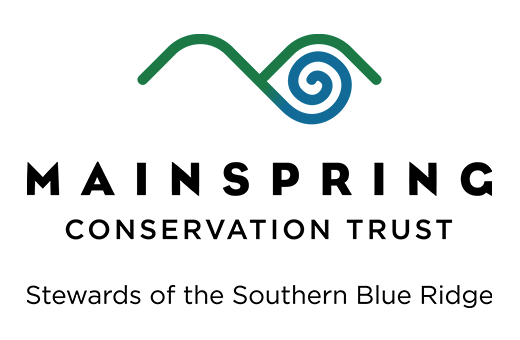On November 29, 2013 The Franklin Press featured a piece from LTLT announcing that North Carolina Congressman Mark Meadows has signed on as a co-sponsor of the Conservation Easement Incentive Act, H.R. 2807, a bill that makes permanent a tax incentive that is due to expire this year that allows modest-income landowners to receive significant tax deductions for donation conservation easements that permanently protect important natural or historical resources on their lands. LTLT thanks The Franklin Press for its coverage of this announcement and Representative Meadows for his support of this important bill. Click the image below to view a larger version of the full announcement.
Representative Mark Meadows Supports Landmark Agriculture and Open Space Conservation Bills
Press Release:
Congressman Mark Meadows has signed on as a co-sponsor of the Conservation Easement Incentive Act, H.R. 2807, a bill that is critical for the protection of millions of acres of the nation’s rural lands, including farm and ranchland and natural areas that support the economy, health and cultural fabric of our community. H.R. 2807 makes permanent an incentive that is due to expire at the end of this year that allows modest-income landowners to receive significant tax deductions for donating conservation easements that permanently protect important natural or historic resources on their lands.
“LTLT is pleased that Congressman Meadows is stepping up for Western North Carolina to make this important conservation tool permanent,” said Paul Carlson, LTLT Executive Director. “The incentive has had a dramatic impact in helping landowners protect water quality and permanently conserve working forests, farmlands, and wildlife habitat in LTLT’s project area.”
When donating a conservation easement, landowners maintain ownership and management of their land and can pass the land on to their heirs, but forego their rights to develop the land in the future. This bill allows farmers, ranchers and other landowners of modest means to deduct a larger share of their income over a longer period of time, which will make it possible for more families to afford to conserve their land. A survey shows that this incentive boosts the land saved by conservation easements by a third – to over one million acres per year.
A remarkable 149 representatives and 15 senators with strong representation from both parties have already lent their support to this bill. A broad coalition of sportsmen, outdoors enthusiasts, farmers, ranchers and national conservation groups are working together to make this incentive permanent in the 113th Congress.
Land Trust Alliance President Rand Wentworth praised the work of Congressman Meadows. “In this era of partisanship and discord, it is encouraging to see leaders join together and push to enact a bill that a majority of Congress already supports.” He added: “Their efforts to make this important conservation tool permanent are welcomed by the nation’s 1,700 land trusts, their two million supporters, and the countless local communities seeking to protect the clean air and water, scenic landscapes, recreational places, and wildlife habitat that are central to their lives.”
The enhanced tax incentive allows working family farmers, ranchers and forest owners, to deduct up to 100% of their income for as many as 16 years in order to deduct the full value of their generous gift. First passed in 2006 and extended three times, this incentive is set to expire on December 31, 2013. The Conservation Easement Incentive Act will make this valuable conservation tool permanent.
LTLT Seeks to Acquire Brownfield Property on Little Tennessee River
Press Release:
LTLT has signed a contract to purchase the J.H. Duncan Oil Company property (former CITGO gas station) adjacent to LTLT’s office at 557 East Main Street in Franklin. Including 350 feet of river frontage, the 1.3-acre property is a former petroleum storage and dispensing facility and is expected to have soil contamination from that long-term past use. A final purchase will depend on whether LTLT can enter into a satisfactory and affordable Brownfields Agreement with the North Carolina Department of Environment and Natural Resources (DENR). Future uses of the property may be limited by that agreement.
 DENR defines a “brownfield site” as “an abandoned, idled or underused property where the threat of environmental contamination has hindered its redevelopment.” Under DENR’s Brownfields Program a purchaser is obligated to remediate contamination issues to agreed-upon levels, which may depend in part on the future use of the property. The purchaser is otherwise protected from liability if it complies with the DENR agreement.
DENR defines a “brownfield site” as “an abandoned, idled or underused property where the threat of environmental contamination has hindered its redevelopment.” Under DENR’s Brownfields Program a purchaser is obligated to remediate contamination issues to agreed-upon levels, which may depend in part on the future use of the property. The purchaser is otherwise protected from liability if it complies with the DENR agreement.
“Some may be surprised by LTLT’s interest in acquiring this economically distressed and environmentally degraded property,” said LTLT Board Chair Ken Murphy, “however this step should be seen as evidence of the full consolidation of the Little Tennessee Watershed Association (LTWA) with LTLT following the merger of the two organizations at the end of 2011.” Previous LTWA work had identified the most significant water quality issues in the Little Tennessee watershed as originating in the urban streams, which drain the town of Franklin. By engaging in brownfield cleanup in the floodplain LTLT begins to address some of these problems.
“Though we will not know whether we will be able to complete this project until we have submitted environmental test results to DENR, we believe this project deserves our best efforts,” Murphy continued. “If we are successful, we believe the cleanup of this property will kick-start the revitalization of the neighborhood, which serves as a gateway into downtown Franklin. That would provide significant benefits to the community.”

Eighteen months ago LTLT moved its larger staff and program work to newly leased offices at its present location, which is adjacent to the only unfinished portion of the 4.5-mile Little Tennessee River Greenway. “I had really never spent any time in this neighborhood before,” said Paul Carlson LTLT’s Executive Director, “yet once located here I began to appreciate what a great location it could be. Our staff uses the Greenway regularly and some of Franklin’s best restaurants are within walking distance. In spite of its proximity to so many amenities, there are two key problems in this area: one is that it is not at all pedestrian friendly; the second is the dilemma of brownfields in the floodplain which has contributed to financially distressed properties with contamination clean-up issues. We hope that LTLT’s presence here can help on both of these fronts.”
LTLT is now organized around three program legs: Conserve, Restore, and Connect. While the J.H. Duncan Oil project would Conserve river frontage and Restore an economically distressed and environmentally degraded property, it also has the potential to Connect people to the land and water by improving access to the river— a key part of this project. Also its proximity to the historic Nikwasi Mound enhances the value of restoring the brownfield property.
- « Previous Page
- 1
- …
- 40
- 41
- 42
- 43
- 44
- …
- 65
- Next Page »


